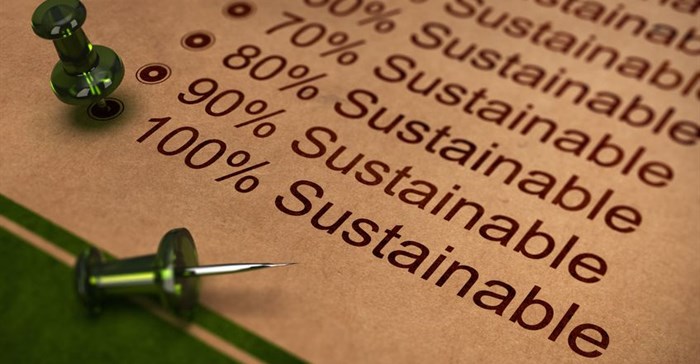
Top stories






More news

















Logistics & Transport
Uganda plans new rail link to Tanzania for mineral export boost









This is according to a major South African bank and retailer who presented their sustainability strategies at the recent Green Business Seminar, which was part of Sustainability Week that took place in Pretoria. The week brought together all the sectors of the South African economy to engage and debate on issues of sustainability.
Kerri Savin, the stakeholder engagement manager at the Nedbank Group, says Nedbank realised this despite having practiced sustainability for many years. "While we were the green and caring bank, we asked ourselves if this was having a positive impact on growing our bottom line and influencing the issue of sustainability. We wanted to achieve a real impact."
To do this they had to align their core business to sustainability. "We believe that what is good for society is good for our clients and our bank. Therefore, while corporate social investment (CSI) is nice, it is not going to give you the best impact. Only your core business can do this."
Following this thinking, the bank developed a strategy with long-term goals that it launched last year. "It is a business strategy not a sustainability strategy. It is a journey and we have not got it right yet. It is hard - there is still so much that we do not know. So we are still learning.
"This strategy forces us out of our comfort zone. It is not easy to do things differently. However, if we are to be successful then we have to do this."
Alexander Haw, Massmart Group sustainability manager, says what the company does to function on a daily basis presents challenges from a sustainability point of view.
However, in the South African environment, the business case for sustainability has never been better, he says. "This is a great time to be in sustainability and environmental management. I am bullish about the environment we operate in."
In this environment:
For Massmart, of which Walmart is a major shareholder, sustainability is not about the environment but includes a social component.
Energy, waste and water are key considerations. For example, electricity represents about 70% of the retailer's carbon footprint. "We engage with our suppliers on these issues as well. In 2014 we recycled over half of our operational waste."
The retailer is constantly looking for and measuring improvement. "From our legacy stores to our latest stores, we are constantly improving on various levels, from energy efficiency to operating costs. Our latest stores have been built without increasing our footprint. However, there is always room for improvement."
They are also broadening the scope of accountability by assisting customers and suppliers to make thoughtful choices on key issues. "Business is about demand. Therefore the customer wants a tablet, but we can help them buy one that is socially and environmentally more responsible."
Further collaboration is needed for change. However, we need to talk to each other. It does not help if we are all doing the same things but not communicating. Sustainability is a big field, so we are not connecting with each other. Let's connect and use sustainability as an innovation tool to provide a competitive edge and use this to our advantage on all levels.
Sustainability Week was held from 23-28 June 2015 at the CSIR Convention Centre. For more info, go to www.sustainabilityweek.co.za.
